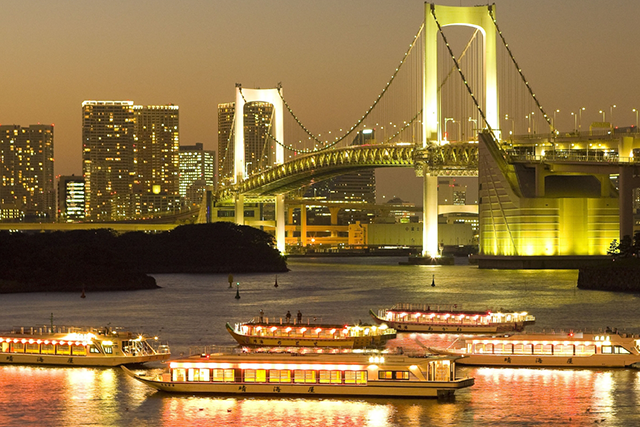Fukiya Furusato Village
A nostalgic cityscape with uniform sekishu-gawara roof tiles and bengara color
Once a flourishing mining town during the Edo (1603–1868) to Meiji (1868–1912) periods, this village was famous as a major producer of vivid red “bengara” color pigment made from oxidized iron. The village is designated as an Important Preservation District for Groups of Traditional Buildings, and the uniform red copper sekishu-gawara roof tiles and bengara buildings are part of the cultural heritage left by Fukiya's elders. The workshop plans for making handkerchiefs or bags using the bengara pigments are popular.
Once a flourishing mining town during the Edo (1603–1868) to Meiji (1868–1912) periods, this village was famous as a major producer of vivid red “bengara” color pigment made from oxidized iron. The village is designated as an Important Preservation District for Groups of Traditional Buildings, and the uniform red copper sekishu-gawara roof tiles and bengara buildings are part of the cultural heritage left by Fukiya's elders. The workshop plans for making handkerchiefs or bags using the bengara pigments are popular.
View scenic routes that include this spot
CITYSCAPE FROM THE SKY
More Information about Fukiya Furusato Village
Street address
- Fukiya, Nariwa-cho, Takahashi City, Okayama Prefecture
Access
- Around 55 minutes by bus from JR Bitchu-Takahashi Station. Disembark at Fukiya Bus-tei.
Opening Hours
- Varies depending on the facility
Closed
- Varies depending on the facility
Best season
- Apr., May, Jun., Jul., Aug., Sep., Oct., Nov.
Point
- At the Fukiya Information Center Shimomachi Flat, you can experience bengara dying and mud dying. Workshops take at least 15 minutes. You can take what you make home with you the same day. The Fukiya Lantern Festival is held during late October.
update: Sep.3.2024
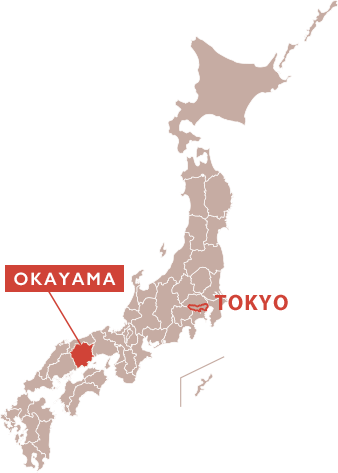
Spots around
-

Kasaoka Islands
-

Kibitsu-jinja Shrine
-

Kibiji Cycling Course
-

Betty Smith Jeans Museum & Village
-

Okayama Momotaro Airport
-

Ohashi House
-

Koyagawa Bikan Historical Quarter
-

Hop around "Okayama, the City of Fruit Parfaits"
-

Bizen Yaki Dento Sangyo Kaikan
-

Ohara Museum of Art
-

Momotaro Karakuri Museum
-

Inujima
-

Mt. Washuzan Observatory (Great Seto Bridge)
-

Bitchu Matsuyama Castle
-

Kurashiki Bikan Historical Quarter
-

Okayama Korakuen Garden and Okayama Castle
-

Miyashita Sake Brewery
Craft brewery Doppo Kan -

Kojima Jeans Street
-

Walking in Okayama City (Okayama Gourmet Hopping)
-

Traditional Boat Tour of Kurashiki Canal
-

Asahi River Sakura Road
-

Bizen Osafune Japanese Sword Museum
-

Raikyu-ji Garden
-

Yubara Onsen
-

Tsuyama Castle (Kakuzan Park)

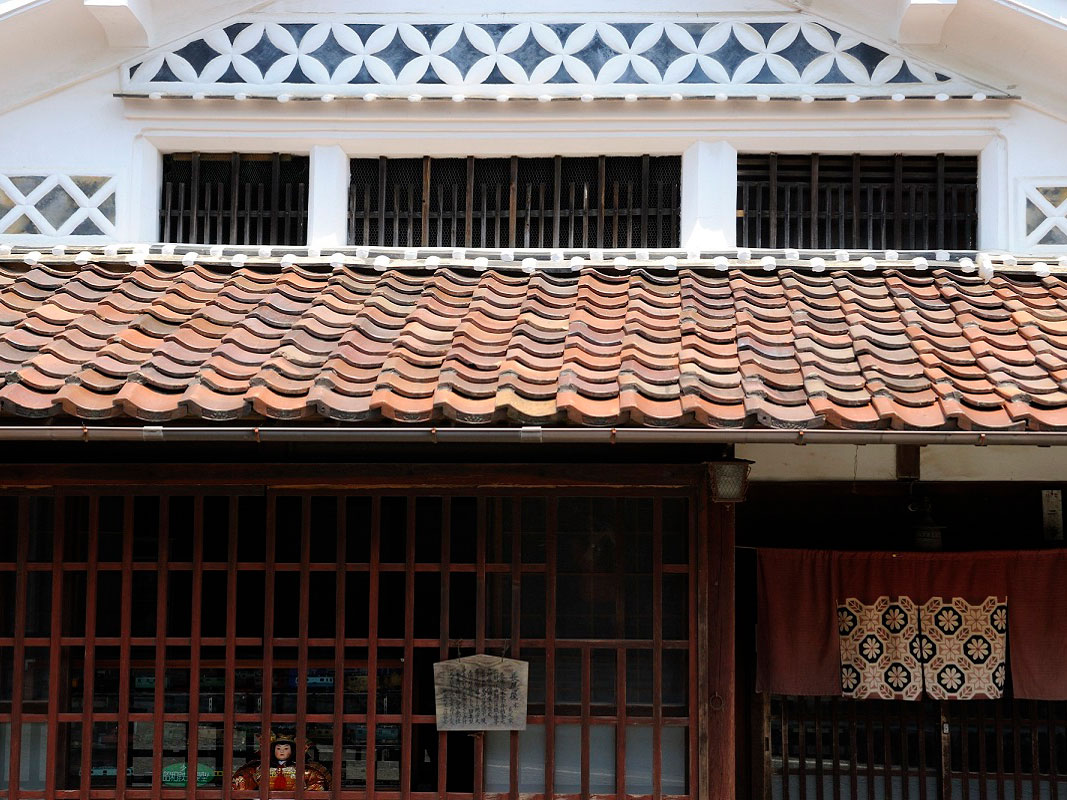
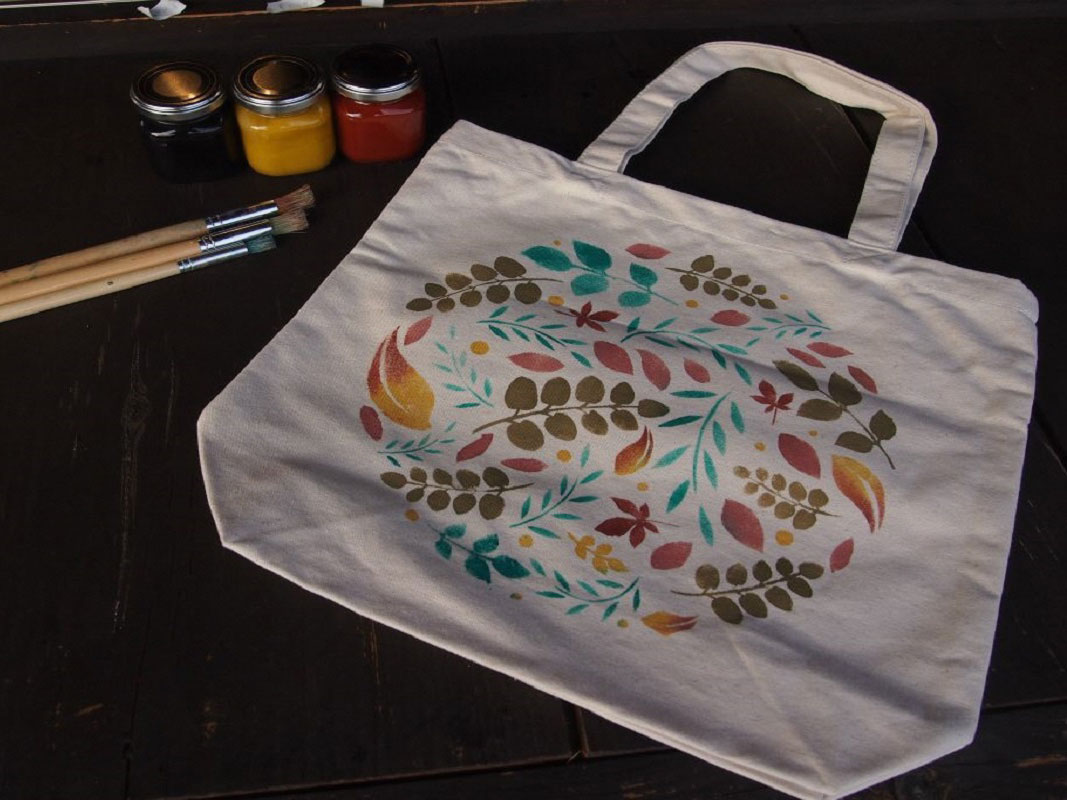
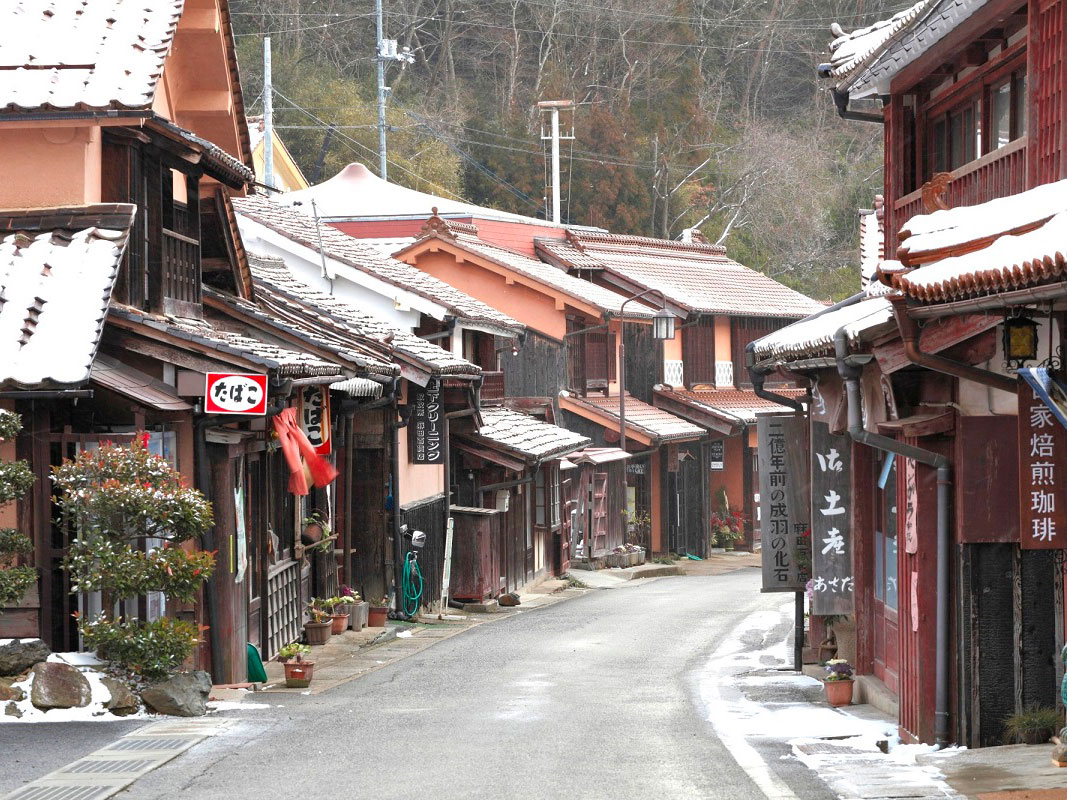




 About OKAYAMA
About OKAYAMA 